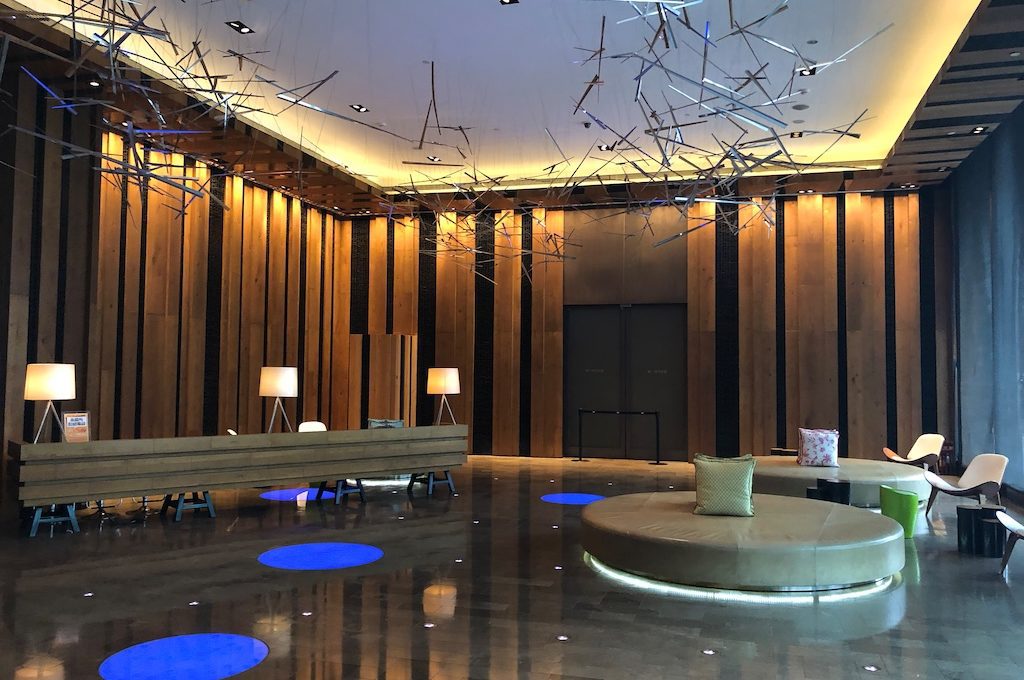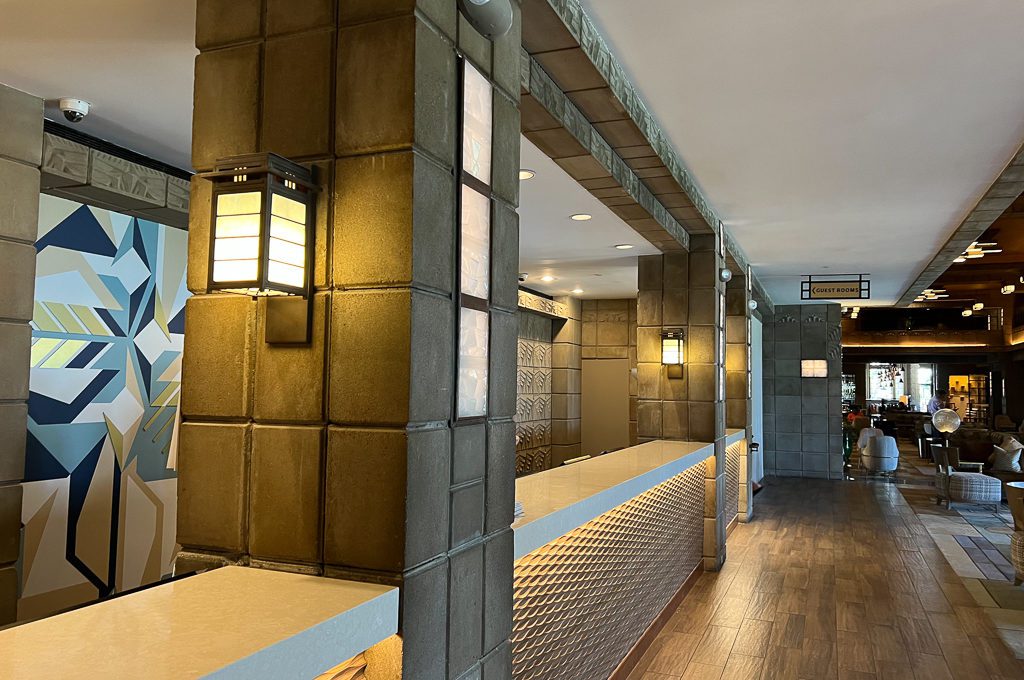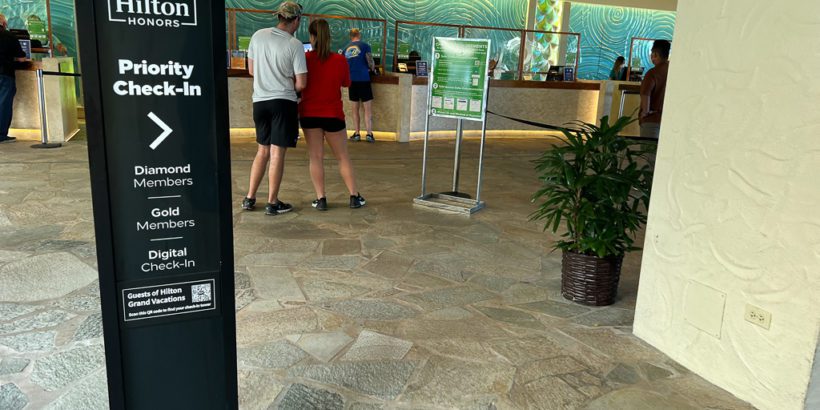There are not many things in travel that are more frustrating than arriving at a hotel that has overbooked for the night.
But why exactly does that happen?
In this article, we will take a look at why hotels overbook and provide some insight into the process.
Table of Contents
Why do hotels over book?
Hotels overbook because just like airlines they want to maximize profits while accounting for last-minute cancellations and no-shows.
Hotels experience a no-show rate of between five and 15 percent and also have early departure guests so many properties will overbook to compensate for those situations in order to achieve 100% occupancy for the night.
When a hotel overbooks and cannot honor a guest’s reservation whenever they show up for check-in, this is known as “getting walked.”

What are the overbooking policies for hotels?
Each hotel will have its own policy with how it deals with a walk.
Generally, they will find comparable lodging for the walked guest in addition to covering transportation to get to that lodging.
Some hotels may even provide additional compensation for the inconvenience.
If you want to get an idea of how hotels will respond, check out our breakdown of different hotel policies and you’ll see the type of compensation and treatment you can expect upon getting walked.
Also, if you want to avoid getting walked in the first place there are several things you may be able to do to reduce the odds of that happening. Check out a lot of those tips in this article right here.

Different reasons why hotels overbook
We know hotels overbook to maximize profits but what specific scenarios can lead to overbooking?
Let’s take a look.
It’s impossible to perfectly predict the future
Each time a hotel leaves a room empty, that’s a missed opportunity for revenue that they will never get back. This is even the case when a hotel guest cancels after the cancellation deadline.
Let’s say there is a hotel with 100 rooms and that they sell out completely but that five guests cancel within 48 hours of check-in and are forced to pay the cancellation fee of one night.
In this situation, the hotel will earn revenue on all 100 rooms despite the cancellations.
However, if they found a way to quickly book those last five empty rooms they can make revenue on 105 rooms and basically double dip on a handful of rooms.
If they don’t overbook then they only have from the time of the cancellations until the time of check-in to fill those rooms which sometimes is not any time at all.
This is especially true if those people just end up being no-shows.
But if the hotel overbooked they can fill those empty rooms and maximize their profits.
Hotels can use sophisticated software to estimate how much they need to overbook based on a variety of factors like weather, local events, seasonality, etc.
But no computer system can perfectly predict the future and so that’s why overbookings are inevitable for many hotels who seek to optimize profits.
Some of the situations below explain how unpredictability can play a role in overbooking.

Technical software system errors
Sometimes due to software glitches or technical errors, the inventory is not accurately displayed for the evening.
For example, the managing software could go off-line for a little while causing errors to happen.
Other weird hiccups could be people booking rooms at the exact same time or accidental duplicate bookings.
Or, there could be human error where an agent simply inputs the wrong information.
So even if the hotel is not purposefully overbooking, system failures may still lead to that outcome.
Related: How Late Can You Book a Hotel?
Online travel agencies
Sometimes the problem is on the online travel agency (OTA) where the guest made the booking. Perhaps their systems are not working properly and they are selling rooms that are not currently available.
You may have gotten a glimpse of this if you’ve ever booked through an OTA and had to wait for your reservation to be confirmed which sometimes could take several hours.
Or, if you’ve been in a situation like I have you arrive at the hotel and the hotel has no idea what booking you’re talking about despite you having booking confirmation in your inbox.
Overstaying guests
Sometimes guests overstay and rather than immediately evict a guest, a hotel will slap them with a late check out fee or perhaps even allow them to stay an extra night depending on the circumstances.
For example, if a VIP guest had something come up, a hotel may choose to accommodate them and walk another guest.
The thinking is that the VIP guest will bring in more revenue in the long term and make up for any lost costs from walking the other guest.
Travel cancellations
Bad weather can move in and force a number of flight cancellations. This can mean a huge influx of unexpected arrivals at certain properties like airport hotels.
These could be business travelers with high levels of elite status which means they could get preference over other non-elites who may be showing up later.
It’s also not too uncommon for a hotel in a smaller urban area to get overwhelmed by some type of special event/occasion and that’s where a lot of overbookings can happen.
“Wrong week” guests
There’s a surprising number of people who simply show up on the wrong day or on the wrong week or month for a hotel booking.
Some hotels will choose to help these guests especially if they fit the right profile.
For example, if a family of four booking one room showed up on the wrong night and a hotel could walk a single non-elite guest in order to accommodate them, there’s a chance they could choose to do that.
Contracts for special groups
Some people may have contractual rights that trump yours when it comes to getting a hotel room.
For example, a hotel near an airport could have an agreement to guarantee rooms for pilots.
Doesn’t this kill customer loyalty?
Getting walked from a hotel is an easy way to kill customer loyalty.
I certainly would not want to book a property that walked me unless they rolled out the red carpet for me in a major way after the walk.
Nevertheless, hotels have analyzed the numbers and have presumably determined that making a few guests unhappy is worth the damage that comes from accommodating the maximum number of paying guests.
As long as a hotel is wisely choosing who they walk and giving preference to the most loyal and profitable guests, they will probably always be able to afford walking a select number of unfortunate guests.
So yes, walking guests kills low-level customer loyalty but it can strengthen high-level customer loyalty if done right. And it’s the latter that usually makes the hotel more money.
Final word
Hotels want to optimize profits and they do that by trying to achieve as close to 100% occupancy every night that they can.
Because there will virtually always be no-shows and last-minute cancellations, hotels have to overbook in order to achieve or come close to 100% occupancy.
And because it is impossible to always perfectly predict the future, this means that there will be a margin of error and some guests will just have to be walked due to overbooking.
As long as the hotel can maintain a minimal amount of walking and preserve their relationships with highly profitable guests, walking will probably not be the downfall of a hotel and will always go on.
Daniel Gillaspia is the Founder of UponArriving.com and the credit card app, WalletFlo. He is a former attorney turned travel expert covering destinations along with TSA, airline, and hotel policies. Since 2014, his content has been featured in publications such as National Geographic, Smithsonian Magazine, and CNBC. Read my bio.

